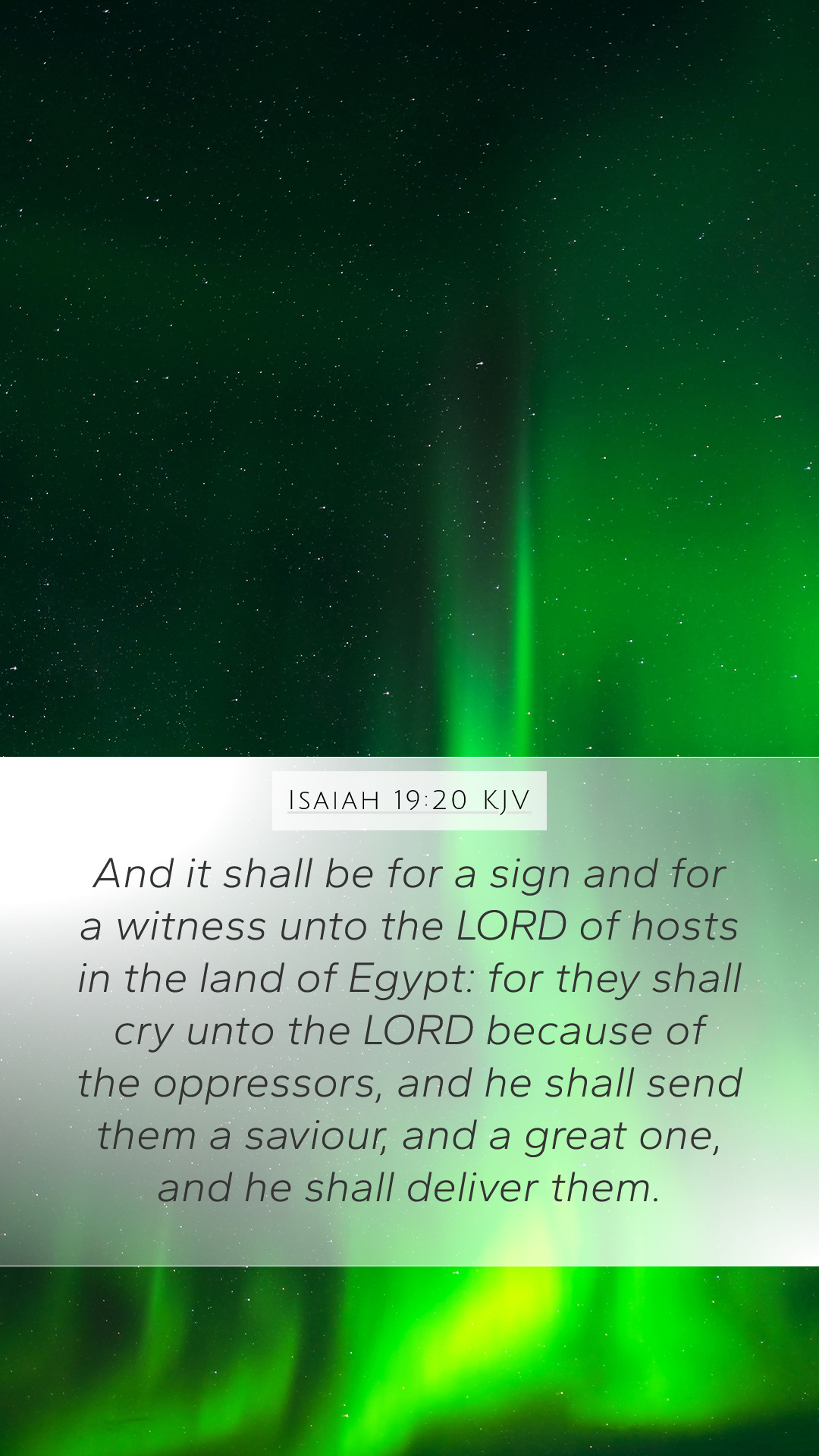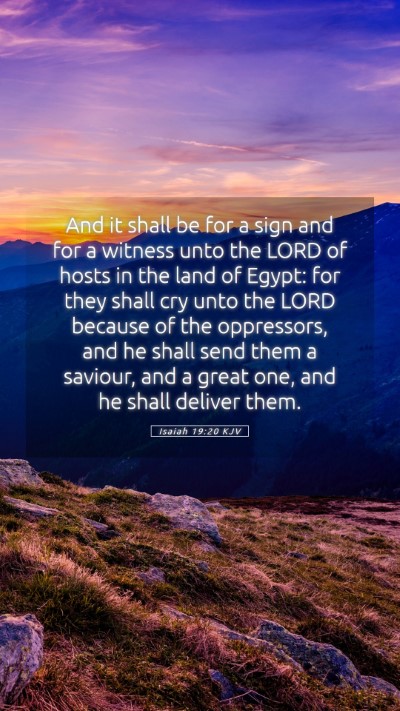Understanding Isaiah 19:20 - A Detailed Bible Verse Analysis
Isaiah 19:20 states:
"And it shall be for a sign and for a witness unto the Lord of hosts in the land of Egypt: for they shall cry unto the Lord because of the oppressors, and he shall send them a savior, and a great one, and he shall deliver them."
This verse reveals profound truths about divine deliverance, illustrating both God's sovereignty and care for His people.
Summary of Insights from Public Domain Commentaries
-
Matthew Henry’s Commentary:
Henry discusses how this prophecy indicates that even amidst suffering, God will respond to the cries of the oppressed. It emphasizes the role of a savior who will be sent to deliver the Egyptians, pointing to God’s compassion across nationalities. This demonstrates God’s commitment to justice and mercy, showcasing that prayers of those in distress, regardless of their background, are heard by God.
-
Albert Barnes’ Notes:
Barnes stresses that the savior mentioned symbolizes a significant intervention by God Himself. The term “savior” suggests a figure who will not only deliver but also restore hope among the people. This reflects God’s nature as a protector and deliverer, resonating with the theme of redemption throughout the Scriptures. The verse serves as a profound reminder of God’s willingness to act in times of trouble.
-
Adam Clarke’s Commentary:
Clarke elaborates on the notion of God being a refuge during tumultuous times. He notes the historical context, where the Egyptians suffered under foreign powers and looked actively for salvation and justice. The reference to crying unto the Lord highlights human dependence on divine assistance. Clarke points out that this passage foreshadows the coming of Christ and the inclusive plan of salvation for all nations, not just Israel.
Contextual Understanding of Isaiah 19:20
To fully grasp the meaning of this Bible verse, it’s essential to acknowledge its historical context and audience. Isaiah was addressing a time of strife in Egypt, a nation often at odds with Israel. This prophetic declaration not only affirmed God's awareness of their suffering but also promised divine intervention.
Key Themes
- Divine Intervention: The promise of a savior is a pivotal theme, reflecting God's active role in human affairs.
- Hope in Deliverance: This verse reassures believers that God hears their cries and responds to their needs.
- Universal Scope of Salvation: Implicitly, this passage points to the future inclusivity of God's plan for all nations, as echoed in the New Testament.
Application and Relevance
Isaiah 19:20 has significant implications for contemporary believers. It encourages individuals to seek divine support during life's challenges and reinforces the belief that God cares for all, not just a select group. This verse can serve as a foundation for lessons in Bible study groups, enhancing discussions about God’s nature and the importance of prayer.
Practical Applications
- Encouragement in Prayer: This verse inspires believers to persist in prayer, knowing that God responds to their cries.
- Reflection on God’s Nature: It prompts a deeper understanding of God’s character as a deliverer and protector.
- Intercessory Prayer for Others: Believers are reminded of the importance of praying for those in distress, being agents of God’s compassion in the world.
Cross References
Isaiah 19:20 relates closely to several other scriptures that elaborate on themes of deliverance and salvation:
- Isaiah 53:5 - The prophecy concerning the suffering servant who provides healing through His wounds.
- Romans 10:13 - "For everyone who calls on the name of the Lord will be saved," echoing the call to God from distress.
- John 3:16 - The universal offer of salvation to all who believe in Christ, illustrating the inclusive nature of God’s plan.
Conclusion
Isaiah 19:20 serves as a powerful reminder of God’s promise to deliver those in distress. By studying this verse through the lenses of various commentaries, believers can deepen their understanding of its implications for faith, deliverance, and divine justice. This analysis is vital for anyone engaged in biblical study, offering rich insights into God’s character and His responsiveness to human need.


